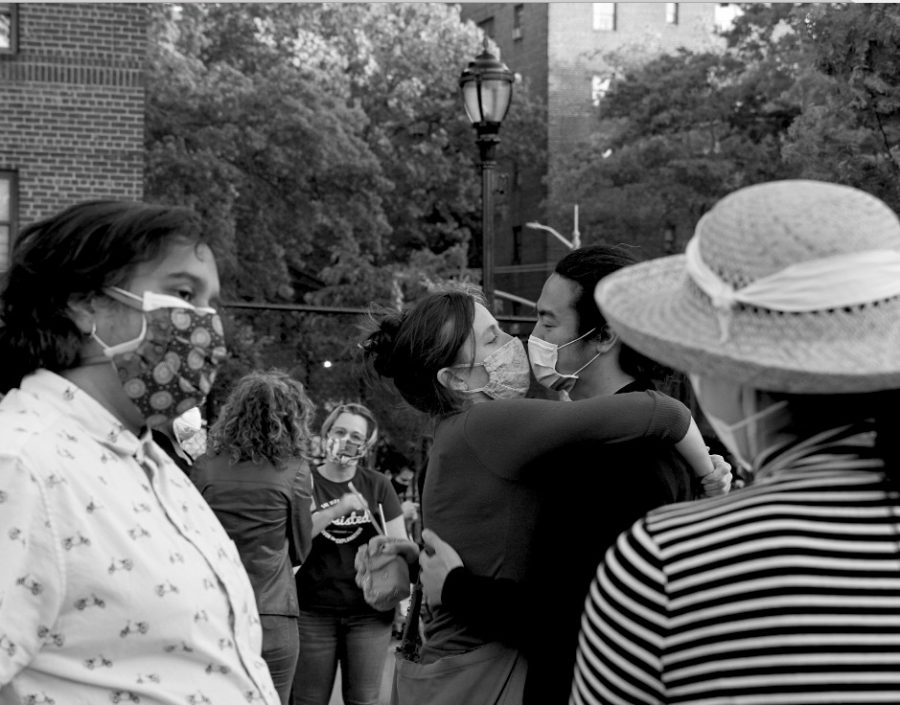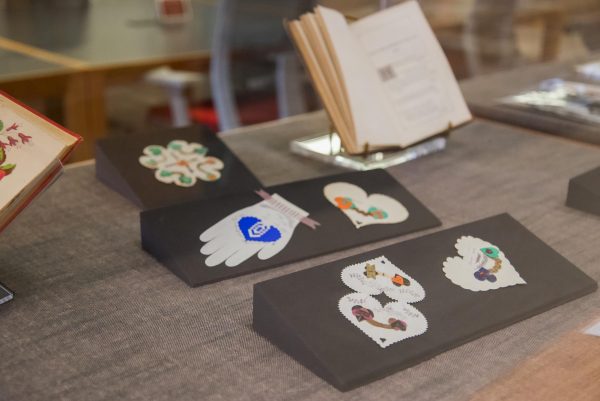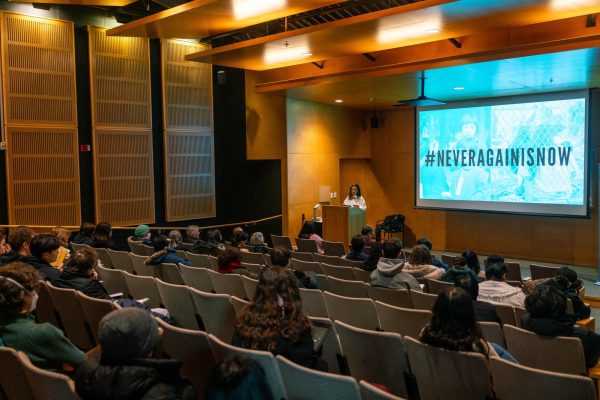Can I Take Your Mask Off? Obies Explore Post-Pandemic Boundaries
For the past 15 months, all of our physical interactions had to first pass a rigorous checklist: Is the person you’re seeing living with people at high-risk from COVID-19? Do you have friends or family in your own bubble you need to protect? If you are seeing a partner, are untimely discussions around monogamy suddenly required? Is it worth it to break isolation at all?
In reflecting on the past four semesters there is a common theme for many: the isolation caused a drought of love and sex. Now, with over 85 percent of the Oberlin College community on-campus fully-vaccinated, COVID-19 precautions have been largely relaxed. The college experience at Oberlin has been freed from the puritan mentality necessitated by the pandemic, and the quivering floodgates of parties and hookups and unfettered friendship are opening. But Oberlin’s sweaty summer can not and should not be disconnected from the prolonged self-reflection warranted by quarantine. Isolation provided the distance and time for many to contemplate their ideas regarding consent — from sex to holding hands.
Rising College second-year Rick Donnelly is a self-professed “big hugger,” elated to be able to fold their friends into long-deprived bear hugs. Still, the pandemic gave them some good time to ruminate on their love language.
“I didn’t really feel particularly touch-deprived during the pandemic,” Donnelly said. “It’s a lot more like the way that I experience or express intimacy — part of it is physical, but it’s also just kind of more like non-physical [and] verbal, just talking with people. Pre-pandemic [to] post-pandemic, my sense of listening … got a lot more developed and [I] also became better about asking to give consent for hugs and anything which involves physical contact, like handshakes.”
College third-year Colby Fortin dedicates a lot of their time to conversations on consent in their roles as a trainer for Preventing and Responding to Sexual Misconduct program, a former OSCA sexual harm information liason, and a sexual assault crisis counselor in California.
“I actually went through all of COVID living with my monogamous partner,” they said. “And as the world opened back up we broke up. Even when I was at Oberlin, I was podded with someone I was hooking up with actually. At the time I think we were the only people hooking up with each other because of COVID and having all those consent conversations and the podding conversations all at once.”
Now, with hookup culture blazing the forefront of campus social life, Fortin is cautious of the ways the pandemic will affect conversations around sex and consent.
“I think that a big part of COVID restrictions was this idea of control,” they said. “People will feel the need to control others and the people they’re hooking up with because we came to this period where that was such an important part of trust in community safety and personal safety.”
College second-year Tiffany Yuen also dedicates much of her work and time to consent, both as a Sexual Information Center staffer and an individual emerging from exactly the kind of self-reflection that Fortin identifies as a necessity in hookup culture.
“During COVID, I think I’ve learned or just done a lot of reflection on my own boundaries and also my friends’ boundaries,” she said. “And I think just reflecting on my past experiences with hookup culture at Oberlin … I feel like I have a level of understanding of what I need when I’m hooking up with someone and that’s communication and consent and asking before I’m touched in a certain way. And I think that this summer in comparison to my experience with hookup culture in the past at Oberlin. … I’ve been actually able to communicate [my boundaries] and I think that having that time of isolation really impacted my relationship with physical touch.”
It’s safe to say that we all missed our favorite modes of connection, whether that be having dinner with friends, hooking up with someone you met at a Union house party, or a good long hug. With our long unsatiated appetites for human interaction finally seated at the feast, we need to take the time to appreciate what’s in front of us. We must allow it to inform us, to enlighten us, to teach us what it means to truly value physical contact. Experience makes us wiser, and wisdom means everyday — always and forever — asking for consent.











